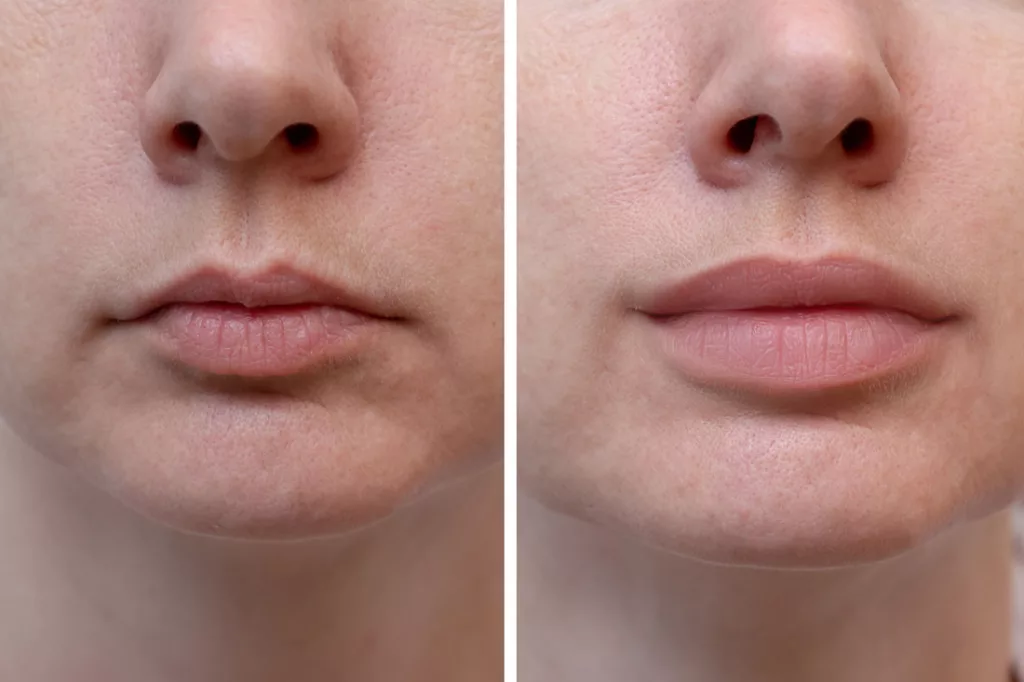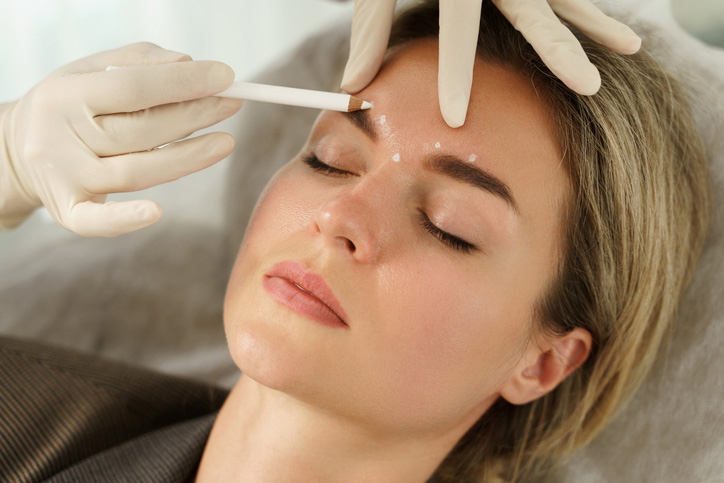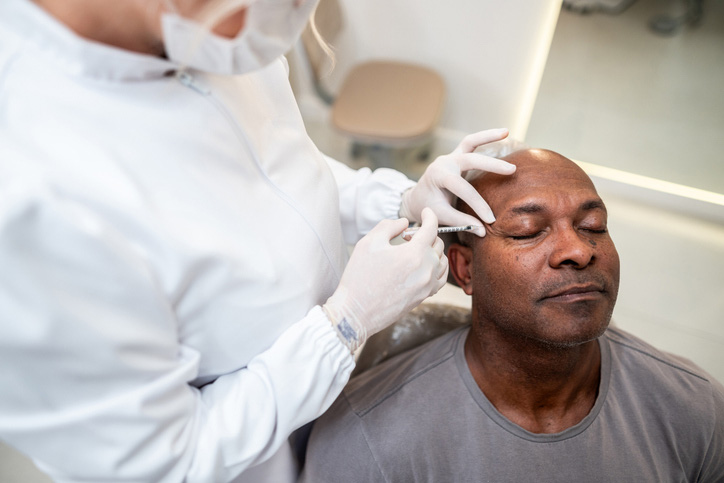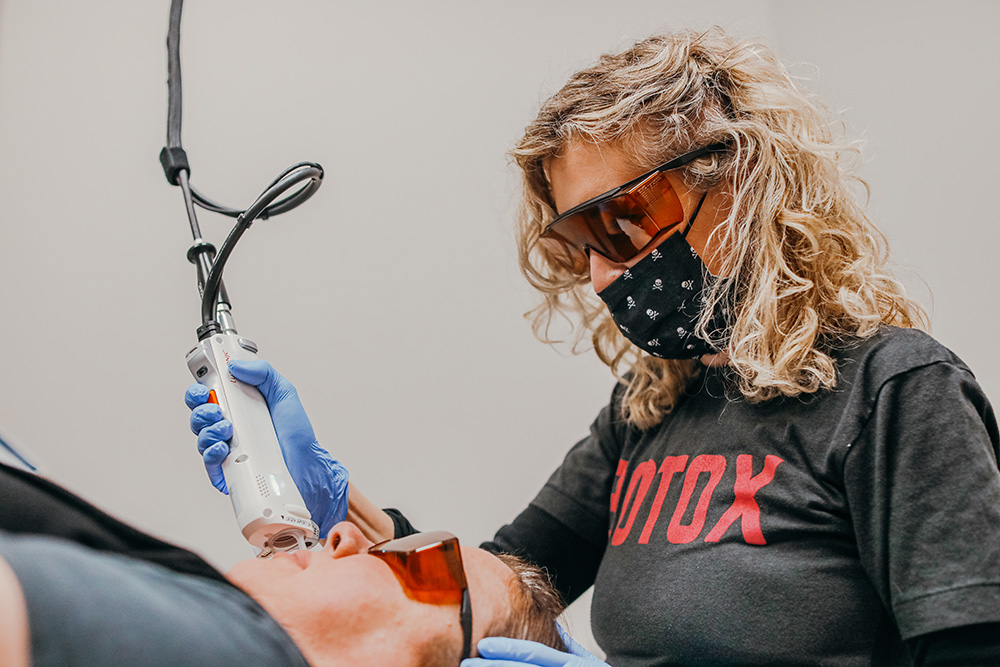You’ve done the research on the different types of lip filler, you’ve met with your nurse injector, and you’ve taken the plunge to get lip injections—now what? How long can you expect your new lip injections to last? After all, you’ve made a big investment with your time and finances and you love your amazing new look—you’re likely hoping to maximize the longevity of your lip injections.
Are lip fillers permanent?
Many first-time lip filler patients ask if lip fillers ever fully go away. Unfortunately, the answer is no—most lip fillers are not permanent. The most popular types of lip fillers like Juvéderm are made from hyaluronic acid, which is a natural substance found in the body, and it’s eventually absorbed by the body over several months.
The impermanence of lip fillers is actually a great thing—this allows patients who have a lifestyle change (like pregnancy, for example) or who want to move towards a more subtle look to do so.
Can lip fillers be reversed?
Yes, hyaluronic fillers can be reversed. If a patient is unhappy with their results or experiences complications from the filler, a doctor can inject an enzyme called hyaluronidase to break down the HA and dissolve the filler. This process can usually be done quickly and effectively in the doctor’s office.
However, not all fillers can be reversed. Some fillers are made with other materials that cannot be broken down by hyaluronidase, so it is important to discuss the specific type of filler with your doctor before undergoing the procedure.
Additionally, while fillers can be reversed, this does not mean that the effects will disappear immediately—it may take a few days or weeks for the filler to fully dissolve.
How long do lip fillers last the first time?
Lip fillers typically last between 6-12 months for first-time patients. However, the exact duration will depend on factors such as the type of filler used, the amount injected, and the individual’s metabolism.
Hyaluronic acid-based fillers, such as Juvéderm and Restylane, are commonly used for lip augmentation, and they tend to last longer than other types of fillers. The results of lip fillers are not permanent, and patients will need touch-up treatments to maintain their desired lip volume.
How long do lip injections take?
Lip injections or lip filler appointments typically take approximately 15-30 minutes to complete. Before the procedure, a numbing cream or local anesthetic may be applied to the lips to minimize discomfort. During the injection, the filler is carefully injected into the lips using a thin needle or cannula.
The amount of filler used and the number of injections required will depend on each individual’s desired results. After the injection, some swelling and bruising may occur, but this usually subsides within a few days.
Overall, lip injections are a quick and convenient cosmetic procedure that can enhance the size and shape of the lips with highly satisfactory results.

The secret to long lasting lip injections: proper aftercare.
The secret to long-lasting lip injections is following the aftercare instructions from your injectors. Your injector will likely give you an extensive and comprehensive list of post-treatment do’s and don’ts to stick to. It will look something like this:
Dos:
1. Keep lips clean for at least 24 hours after the treatment.
2. Use ice packs to reduce swelling and bruising.
3. Stay hydrated and avoid alcohol for at least 24 hours, as alcohol can increase swelling.
4. Apply an antibiotic ointment to the injection site to prevent infection.
5. Use a hydrating lip balm to maintain moisture in the lips.
6. Massage the lips gently to evenly distribute the product.
7. Follow the aftercare instructions provided by your doctor.
Don’ts:
1. Do not touch or rub the injection site for at least 24 hours after treatment.
2. Avoid hot beverages, spicy foods, and makeup for 24 hours.
3. Do not participate in any activities that may increase blood flow to the face, such as intense exercise, sauna or steam rooms, for at least 24 hours.
4. Do not take blood-thinning medication such as aspirin, ibuprofen, or vitamin E for at least a day after treatment.
5. Avoid exposure to extreme heat or cold for several days following the treatment.
6. Do not undergo any dental procedures for at least two weeks following treatment.
7. Do not smoke for at least 24 hours following the injection.
It is important to discuss your goals and expectations with an experienced lip injector and to follow their aftercare instructions carefully to ensure the best possible outcomes and to make sure your lip injections last as long as possible.
Are lip fillers worth it?
Most of our patients absolutely love their lip fillers and the results they get! Of course, each patient is different, but most people do extensive research and weight the pros and cons heavily with their nurse injector before deciding to get lip fillers.
Some patients are looking for a more subtle and natural look, while others expect a noticeable addition of volume to their lips. A good lip injector can give you the most precise results and ensure that you leave with the exact lip plumpness you’re looking for.
Schedule a lip injection appointment with our expert injectors at DermaBlue.
All of our nurse injectors at DermaBlue are some of the very best and most trusted lip injectors in the region, and have years of experience getting exact results for our patients.
If you’re considering lip injections, be sure to schedule a free 30-minute aesthetic consultation to see if lip fillers are right for your goals.
During this consultation, your injector will discuss your aesthetic goals, assess your unique facial structure, and come up with a roadmap that includes proper treatment dosages, type of lip filler needed, and dosing treatment schedule.
Contact us today to get started with your first lip filler appointment in a welcoming, comfortable environment!
Frequently Asked Questions about Dysport and BOTOX®
Yes, lips can go back to their original shape and size after fillers. The duration of the effect of lip fillers depends on the type of filler used, the amount of filler injected, and the individual’s metabolism. Generally, temporary fillers can last between six months to a year, while thicker and more permanent fillers can last up to five years. Over time, the body breaks down the filler, and the lips gradually return to their natural appearance. It is essential to choose a qualified and experienced injector who uses safe and reliable fillers to minimize the risk of complications and ensure natural-looking results.
Over time, the filler material will gradually break down and be naturally absorbed by the body, so if you don’t get another treatment, your lips will eventually return to their natural size and shape. However, it is also possible for the filler to leave behind some subtle changes in the lips’ natural texture or contour.
The level of pain experienced during a lip filler treatment can vary depending on several factors, including the individual’s pain threshold, the amount of filler being injected, and the technique used by the injector.
Typically, patients may experience some level of discomfort during the procedure, such as a pinching or burning sensation as the needle enters the skin. However, the discomfort is usually temporary and can be minimized with the use of numbing cream, local anesthetic, or ice before the treatment.
Many patients report that the results of the lip filler treatment outweigh any temporary discomfort during the procedure.
Yes, there are some potential downsides or side effects from lip fillers. Some people may experience discomfort or swelling after having the treatment, and in rare cases, more serious reactions have been reported, such as bleeding or infection.
There is also a risk that the results may not be as expected, and the lips may look unnatural or uneven. Additionally, lip fillers are not a permanent solution, and the effects will gradually wear off over time, requiring repeat treatments to maintain the desired look.
It’s important to fully research the procedure and potential risks before deciding to get lip fillers, and to choose a reputable practitioner with experience and training in the treatment.
While lip fillers can enhance the appearance of lips, there are certain people who are not good candidates for this procedure.
Generally, individuals who are pregnant or breastfeeding should not get lip fillers.
People with active cold sores, allergies to certain ingredients, or infections around the mouth should also avoid the procedure until these conditions have resolved.
Those who have had an allergic reaction to a dermal filler in the past or have autoimmune diseases may not be suitable for lip fillers either.
People with very thin lips may not be good candidates for lip fillers as overfilling can lead to unnatural-looking results.
You should always consult with a qualified and experienced medical practitioner to determine if lip fillers are right for you.








